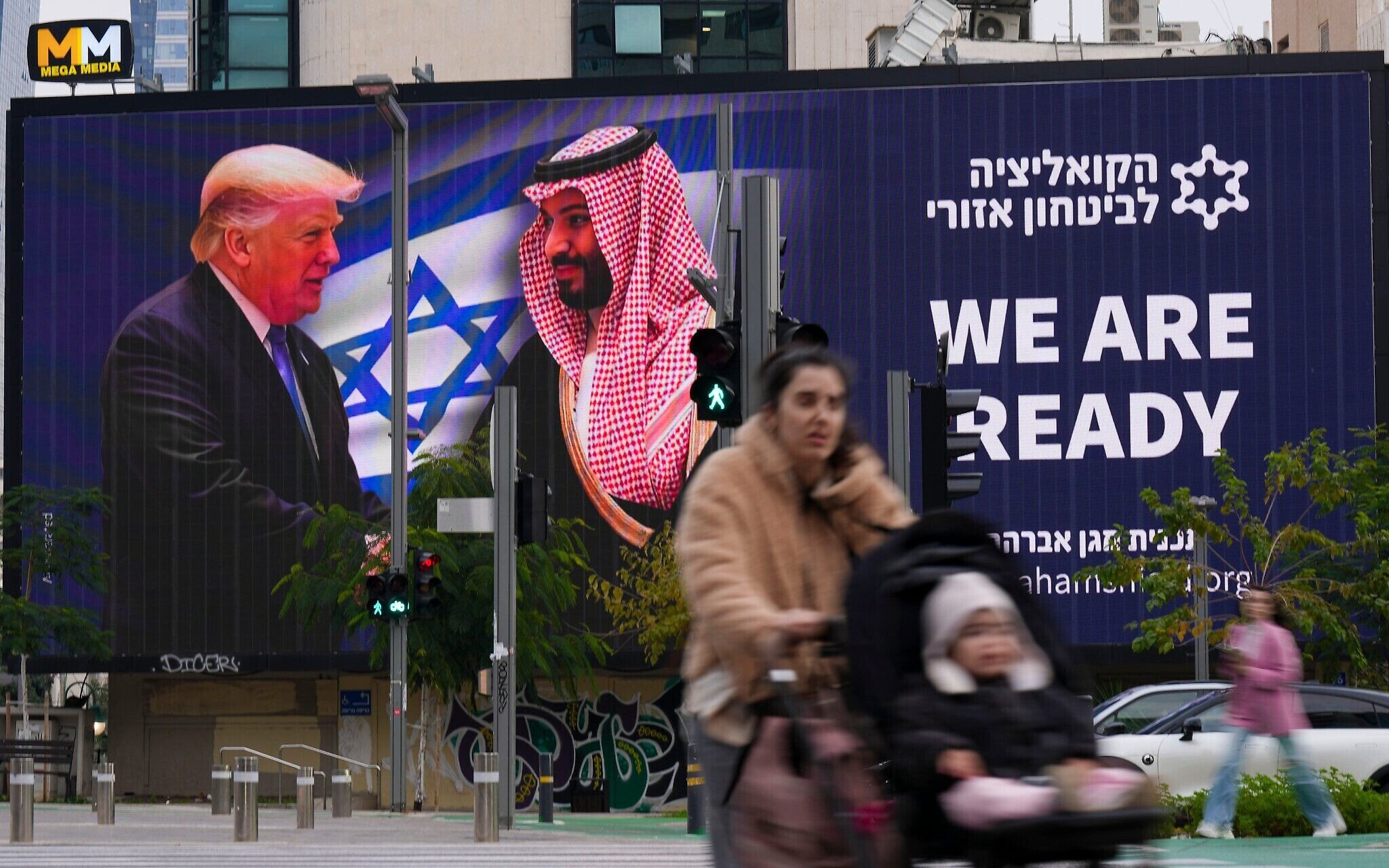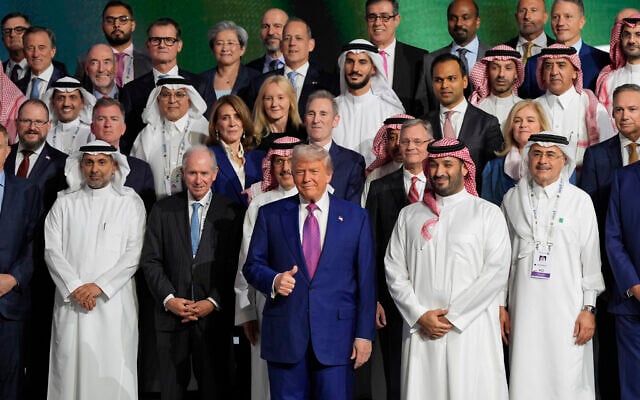



Sixty-one percent of Israelis support normalizing ties with Saudi Arabia and expanding the Abraham Accords in 2025, according to a poll published Tuesday, coinciding with US President Donald Trump’s first Middle East tour.
The survey, conducted by Ipanel on behalf of the Coalition for Regional Security, found that just 4.7% of respondents opposed Saudi normalization, while 33.9% said they neither support nor oppose such a move.
The survey measured Israeli public attitudes on regional diplomacy, the war in Gaza, and a potential US-led initiative based on a representative sample of 954 Israeli adults, including both Jews and Arabs.
The poll was released as Trump began a four-day trip to the Middle East, kicking off in Saudi Arabia before continuing to the United Arab Emirates and Qatar. Speaking at an investment summit in Riyadh, the president said Tuesday that it is his “dream” for Saudi Arabia to join the Abraham Accords, though he acknowledged that Riyadh would do so in its own time.
“It’s my fervent hope, wish and even my dream that Saudi Arabia… will soon be joining the Abraham Accords,” he said.
The poll suggests that many Israelis share that sentiment. When asked whether normalization with Saudi Arabia would strengthen Israel’s security, economy and regional standing, and weaken Iran, 67% of respondents said it would contribute significantly. Another 16% said it would contribute little or not at all, while 17.1% said they didn’t know.

Support for normalization was also consistent across political lines. Among Israelis who voted for the parties in the government coalition, 60% said they support normalization (compared to 61% of all respondents), and 65% said it would contribute significantly to Israel’s strategic interests (compared to 67% overall).
The poll also addressed the impact of Israel’s ongoing war in Gaza on ties with Saudi Arabia and beyond. A majority — 53% — said that occupying and controlling the Gaza Strip would somewhat or greatly harm the chances of reaching an agreement with Saudi Arabia and cooperating with moderate countries in the region. Just 12.8% said it would not harm those efforts, while 34.3% said it would neither help nor hinder them.
A substantial majority — 68.9% — said they would back a Trump-led regional political initiative that included the return of all Israeli hostages, an end to the war in Gaza, normalization with Saudi Arabia, a pathway toward separation from the Palestinians, and the formation of a US-led regional security coalition against Iran. Only 9.7% said no while 21.5% were neutral.
Upon publication of the poll, the Coalition for Regional Security — a group of over 100 senior Israeli figures from the military, political, business, and academic sectors — called on the government to act quickly.
“This survey serves as an urgent wake-up call to the Israeli government: enough with political intransigence — get on board the regional train now,” the group said in a statement.

“This is the moment to seize the historic opportunity presented by President Trump to reshape the Middle East and strengthen Israel’s security. History will not forgive those who miss the chance to bring regional stability through strategic alliances and courageous partnerships that are forming at this very moment. The Israeli people want this — now the government must say ‘yes’ to President Trump. If we keep hesitating — we will be left behind.”
During his visit in Riyadh, Trump signed a host of economic and bilateral cooperation agreements with Saudi Arabia.
Crown Prince Mohammed bin Salman, the de facto Saudi ruler, has already committed to some $600 billion in new Saudi investment in the US, but Trump teased that $1 trillion would be even better. The agreements included a mammoth arms deal described by the White House as the largest “in history” between the allies, worth nearly $142 billion.
Trump also announced the lifting of sanctions on Syria’s new government, after being pressed by bin Salman and Turkish President Recep Tayyip Erdogan.
The US president will next travel to Qatar and the United Arab Emirates in his first Middle East tour, notably skipping Israel.
